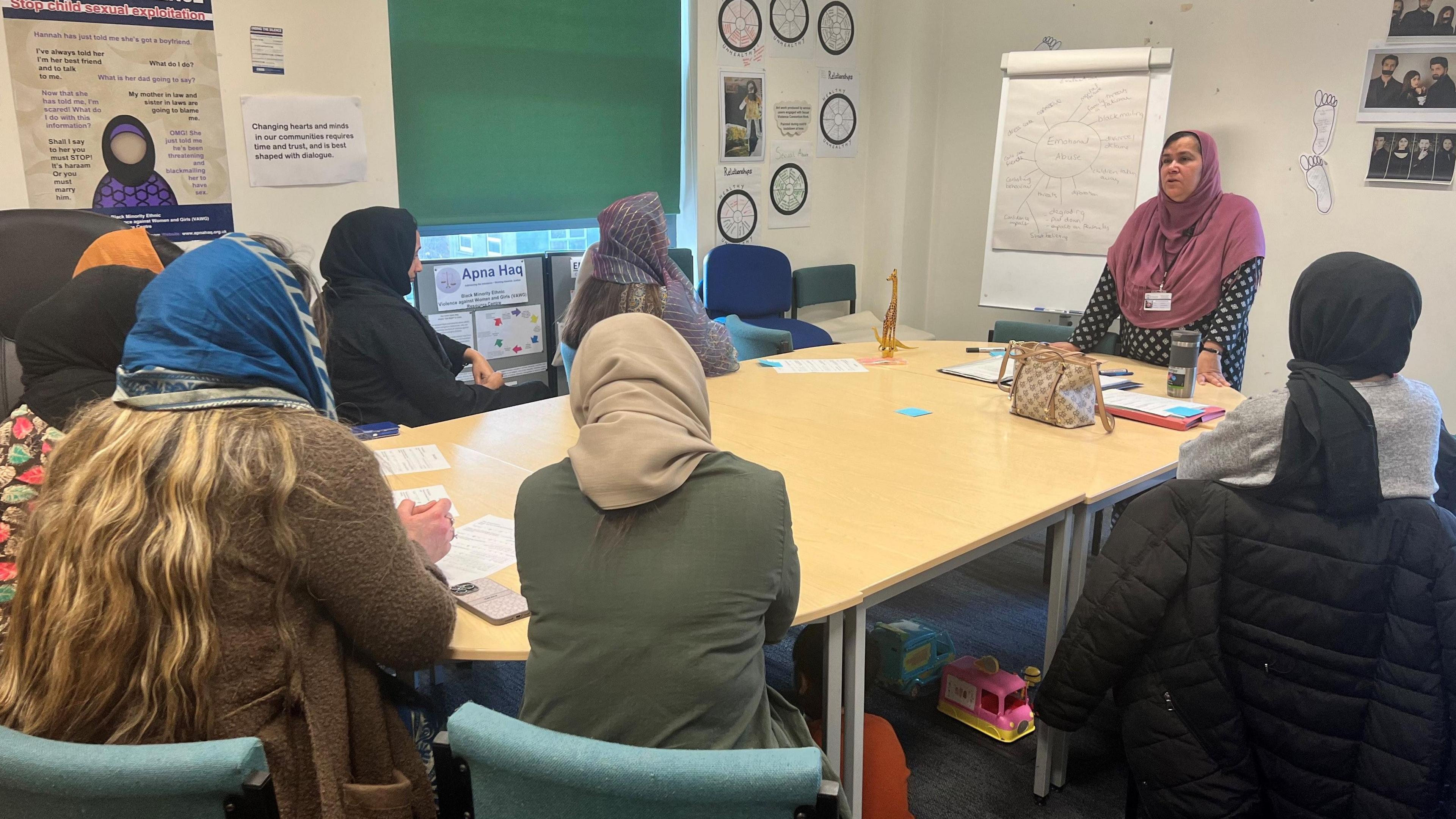'No word in my language for emotional abuse'

Women taking part in a course about domestic abuse run by the charity Apna Haq
- Published
Women of South Asian heritage have said they hope that learning about domestic abuse will "stop the cycle for the next generation".
The charity Apna Haq, which supports women and girls from ethnic minorities from its Rotherham base, runs courses that give them the "language" to talk about the abuse they have suffered or witnessed.
A recent group of 12 women were given help to discuss the issues they faced before returning to their communities to educate others.
Zlakha Ahmed, who founded Apna Haq 30 years ago, said: "The stigma will remain as long as we don’t talk about these issues openly."
Simran from Huddersfield fled an arranged marriage in which she was forced to work for her husband's benefit.
Simran, who did not want to use her real name, came to the UK from India, where she had witnessed violence in her family home.
She hoped that her life in Huddersfield would give her freedom, but instead she found herself exploited by her husband and his parents.
She pointed out that there were no words in her first language, Punjabi, to define domestic abuse that was not a physical act.
Apna Haq works to raise awareness of emotional, economic and sexual abuse as well as violence.
Simran, whose parents arranged her marriage, told the BBC: “When I was coming here I thought I was going to a modern world, an advanced society.
"I thought I'd be able to wear what I want, study, work, and be my own person."
If you are affected by any of the issues in this story, help and support is available at BBC Action Line
She left the 15-year relationship a decade ago, but only later realised that she had been a victim of domestic abuse like her mother had been.
"I saw my father beating my mother up, and felt like the lucky one because it was not happening to me," she said.
"I thought I was in a better position because I was going out to work, but they were sending me out to earn money that I had to give to them."
Simran, who had a good education in India and could speak English when she moved to the UK, had four children and eventually left because she could see the effect the abuse was having on them.
She said she struggled to access help or advice because of the "shame" doing so would bring on her family.
'Stigma will remain'
Apna Haq's 10-week Azaadi course - the word means "freedom" in Hindi and Urdu - gives participants an understanding of cultural issues such as language barriers and community pressures.
Those attending the group when the BBC visited, who preferred to remain anonymous, said that it was harder to recognise emotional abuse and that it was not talked about enough.
One woman said: “From the beginning we were made to be scared.
"My family said not to talk about what happens in the home.
“I’m still scared about what might happen if people find out.
"But I don’t think anything I say at this group will be exposed, so I’m not as scared."
Ms Ahmed added: "These women are now talking about these issues.
"When they go back into their communities, they will talk to other women.
"Being South Asian doesn’t mean that we have to have a culture which is about being emotionally abusive.
"They tell me they want to stop the cycle for the next generation."
Listen to highlights from South Yorkshire on BBC Sounds, catch up with the latest episode of Look North or tell us a story you think we should be covering here, external.